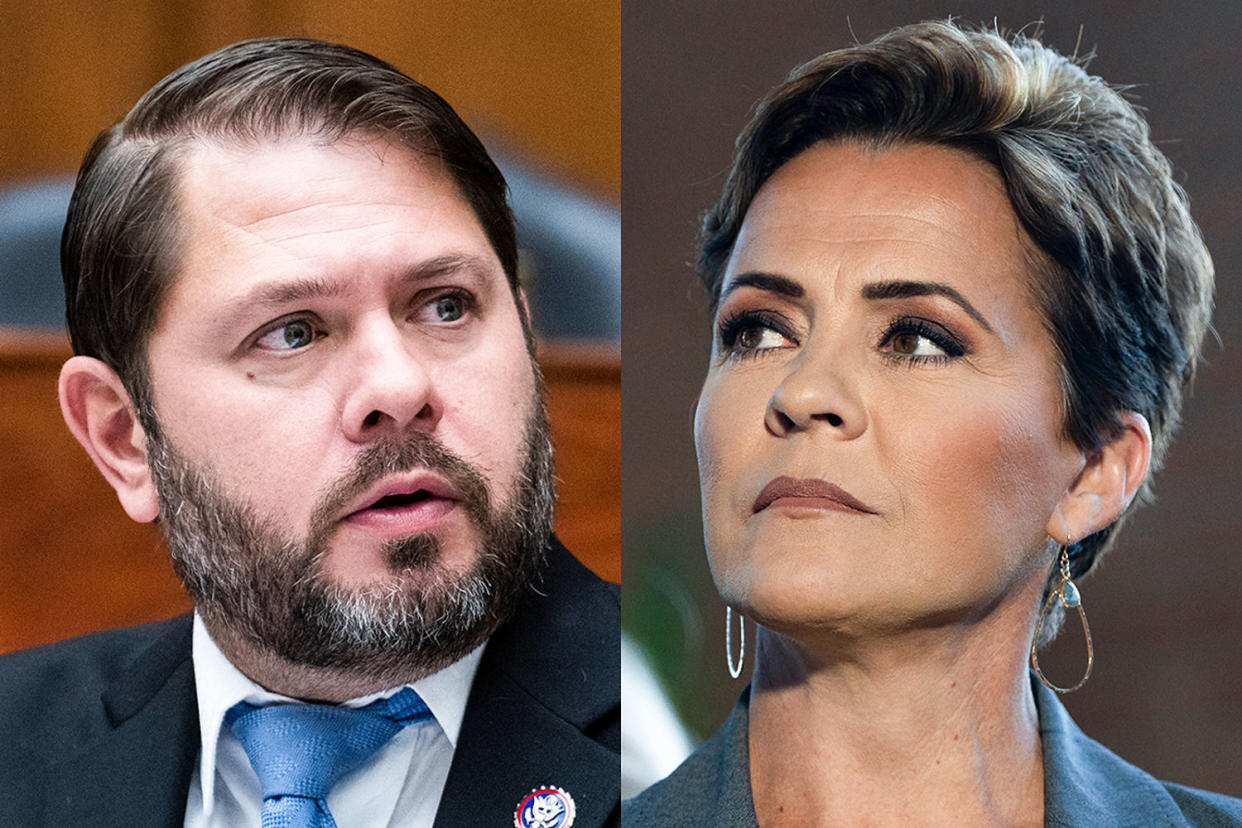Kari Lake Wins Arizona GOP Senate Primary, Setting Up a Key Race Against Democrat Ruben Gallego
PHOENIX — Arizona's political landscape has shifted dramatically, as Kari Lake has emerged victorious in the Republican Senate primary, according to projections from NBC News. This pivotal victory positions her for a critical matchup against Democratic Representative Ruben Gallego, a race that could significantly influence the balance of power in the U.S. Senate.
Primary Results and Lake's Campaign Dynamics
Lake, a former television news anchor and a fervent supporter of former President Donald Trump, secured approximately 54% of the vote with around 82% of ballots counted. Her closest competitor, Pinal County Sheriff Mark Lamb, garnered about 40%, leaving Elizabeth Reye, another candidate, trailing far behind. The results underscore Lake's robust support within the Republican base, which has coalesced around her Trump-endorsed platform.
"This is not a battle between Democrats and Republicans. This is a battle between good and evil," Lake proclaimed during her election night event, reflecting her campaign's combative rhetoric. Her assertion highlights a narrative that frames the upcoming general election as a stark moral choice for voters, focusing on themes of national identity and loyalty.
Having previously gained national attention during her unsuccessful bid for governor in 2022—where she gained notoriety for promoting unfounded claims regarding the 2020 presidential election results—Lake has firmly established herself within the Republican Party’s far-right faction. Her refusal to concede defeat to current Governor Katie Hobbs has only fueled her narrative and visibility in Arizona politics.
The General Election Contest
With the Republican primary behind her, Lake is poised to face Gallego, who ran unopposed in the Democratic primary and is focused on unifying Arizonans. Gallego, a Marine veteran and a member of the Congressional Progressive Caucus, presents a substantial challenge to Lake’s MAGA-centric platforms. He has emphasized his intentions to represent all Arizonans by promoting bipartisan solutions to issues such as abortion rights, economic relief for families, and water conservation.
In a statement on election night, Gallego remarked, "In the 554 days since we launched this campaign, Arizonans in every corner of the state have made clear that they want a U.S. Senator who can bring people together." This approach could resonate with moderates and independent voters during the general election, particularly as Arizona has been identified as a key battleground state in recent national elections.
Financial Landscape and Electoral Stakes
Entering the general election, Gallego carries a notable financial advantage. As of July 10, he reported $8.2 million in his campaign account, compared to Lake's $2.1 million. This disparity may impact campaign strategies as both candidates ramp up outreach and advertising efforts in the coming months.
The stakes are high for both parties; with a 51-49 Democratic majority in the Senate, every race counts towards the balance of power. Arizona's evolving electorate, characterized by a growing diversity and a large number of independent voters, adds further complexity to the upcoming race.
Other Notable Primaries in Arizona
The primaries also featured several competitive races in Arizona's House districts. Freshman GOP Representative Juan Ciscomani successfully defended his seat against challengers, setting the stage for a rematch against former state Senator Kirsten Engel. That district—considered a toss-up—reflects the shifting demographics of Arizona's electorate.
In the 6th District, a competitive field of Democrats was vying to take on Republican Representative David Schweikert, while the 8th District saw a tight race between former County Prosecutor Abe Hamadeh and financier Blake Masters. Both Hamadeh and Masters are known for their support of Trump and their past campaign strategies rooted in election denialism.
In the 3rd District, where Gallego is vacating his seat, a Democratic primary battle is occurring between former Phoenix City Council member Yassamin Ansari and former state Democratic Party chair Raquel Terán. Additionally, down-ballot races, including the close contest between Maricopa County Recorder Stephen Richer and state Representative Justin Heap, emphasize the transformative elections taking place throughout Arizona.
Conclusion
As Kari Lake prepares to challenge Ruben Gallego in the general election, the race will not only test the strength of Trumpism within the GOP but also gauge the resilience of Democratic principles in a rapidly changing state. The upcoming months will undoubtedly see intensified campaigning, with both parties recognizing that the outcomes will resonate far beyond the state, influencing national political dynamics in the upcoming 2024 elections.
